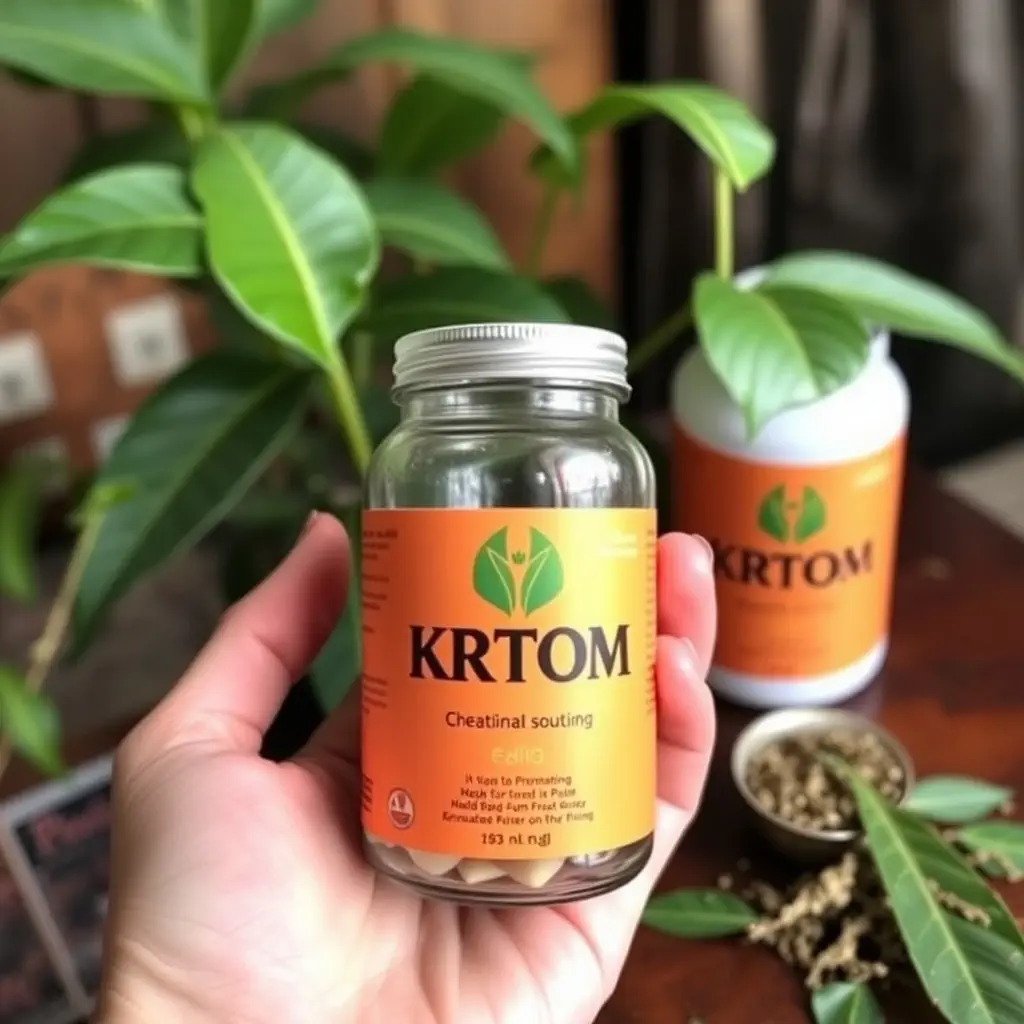Kratom, a legal herb in Utah with <0.3% THC, is gaining popularity among athletes for its potential performance benefits, including muscle relaxation, pain reduction, increased energy, and focus. Its active compound mitragynine interacts with opioid receptors, offering analgesic effects similar to opioids but with lower addiction risk. However, individual responses vary, and side effects may occur with excessive use; thus, Utah athletes are advised to consult healthcare professionals or sports nutritionists before incorporating kratom into training routines.
“Unleash your athletic potential with a natural herb that’s gaining traction among competitors: kratom. This legal and safe alternative offers more than just pain relief; it can enhance performance and recovery. In this guide, we explore the science behind kratom’s effects on athletic prowess, particularly in Utah, where its legality opens doors for informed athletes to harness its benefits. Discover how kratom can provide an edge, improve focus, and speed up recovery without the harmful side effects of traditional stimulants.”
- Understanding Kratom: A Legal Herb with Potential Benefits
- Enhancing Athletic Performance: The Role of Kratom
- Is Kratom a Safe Choice for Athletes in Utah?
Understanding Kratom: A Legal Herb with Potential Benefits

Kratom, scientifically known as Mitragyna speciosa, is a herb native to Southeast Asia that has gained significant attention for its potential performance-enhancing properties. Despite its controversial reputation, it’s important to clarify that kratom is legal in many states across the U.S., including Utah, so long as it contains less than 0.3% THC (the psychoactive compound found in cannabis). This legal status allows athletes and fitness enthusiasts to explore its benefits without fear of legal repercussions.
Research suggests that kratom can aid in muscle relaxation, reduce pain, and enhance overall well-being, which could indirectly contribute to improved athletic performance. The herb’s active compounds interact with opioid receptors in the brain, providing analgesic effects similar to those of prescription opioids but without the same level of addiction risk. Additionally, kratom is known for its stimulatory properties, increasing energy levels and focus—benefits that can be particularly appealing to athletes looking to push their limits during training or competition.
Enhancing Athletic Performance: The Role of Kratom

Kratom, a natural herb with a growing popularity in the United States, including Utah (where it is currently legal), has been explored for its potential performance-enhancing properties among athletes and fitness enthusiasts. The plant contains mitragynine, an active compound known to interact with opioid receptors in the body, offering a range of effects that could benefit athletic performance. From reducing muscle soreness and fatigue to boosting energy levels, kratom’s ability to enhance endurance has attracted attention from those seeking an edge in their training routines.
Research suggests that mitragynine can stimulate the central nervous system, leading to increased alertness and reduced perception of exertion. This effect could potentially allow athletes to train harder for longer periods, improving overall performance and recovery. However, it’s important to approach kratom use responsibly. While legal in Utah, its effects may vary from person to person, and excessive use can lead to side effects. Athletes considering kratom should consult with healthcare professionals to ensure safe and informed decision-making regarding their performance enhancement strategies.
Is Kratom a Safe Choice for Athletes in Utah?

Kratom, a natural herb with various medicinal properties, has gained attention among athletes due to its potential performance-enhancing effects. However, when considering its use in Utah, it’s crucial to address the question of safety, especially regarding sports and fitness activities. Utah’s laws on kratom are relatively clear: while possession and sale are generally regulated, it is legal to possess and use kratom for personal use, as long as it contains less than 0.3% tetrahydrocannabinol (THC). This low THC content distinguishes it from marijuana, ensuring it avoids the psychoactive effects that could impair athletic performance.
For athletes, understanding the safe and responsible use of kratom is essential. The herb has been associated with improved focus, reduced pain, and enhanced energy levels, which could benefit training routines. Yet, individual responses can vary, and proper dosage is critical to avoid adverse reactions. Given the lack of extensive research specifically on athletic performance, athletes in Utah should approach kratom as they would any supplement, with caution and a healthy dose of skepticism. Consulting with healthcare professionals or sports nutritionists before incorporating kratom into training regimens is advisable to ensure it complements, rather than conflicts with, their overall fitness goals.
Kratom, a legal herb with potential benefits, has shown promise in enhancing athletic performance. However, as with any substance, it’s crucial to understand its effects and safety implications, especially for athletes in Utah where the legality of kratom is established. Further research and consultation with sports medicine professionals are recommended before incorporating kratom into training routines, ensuring a safe and effective approach to performance enhancement.






